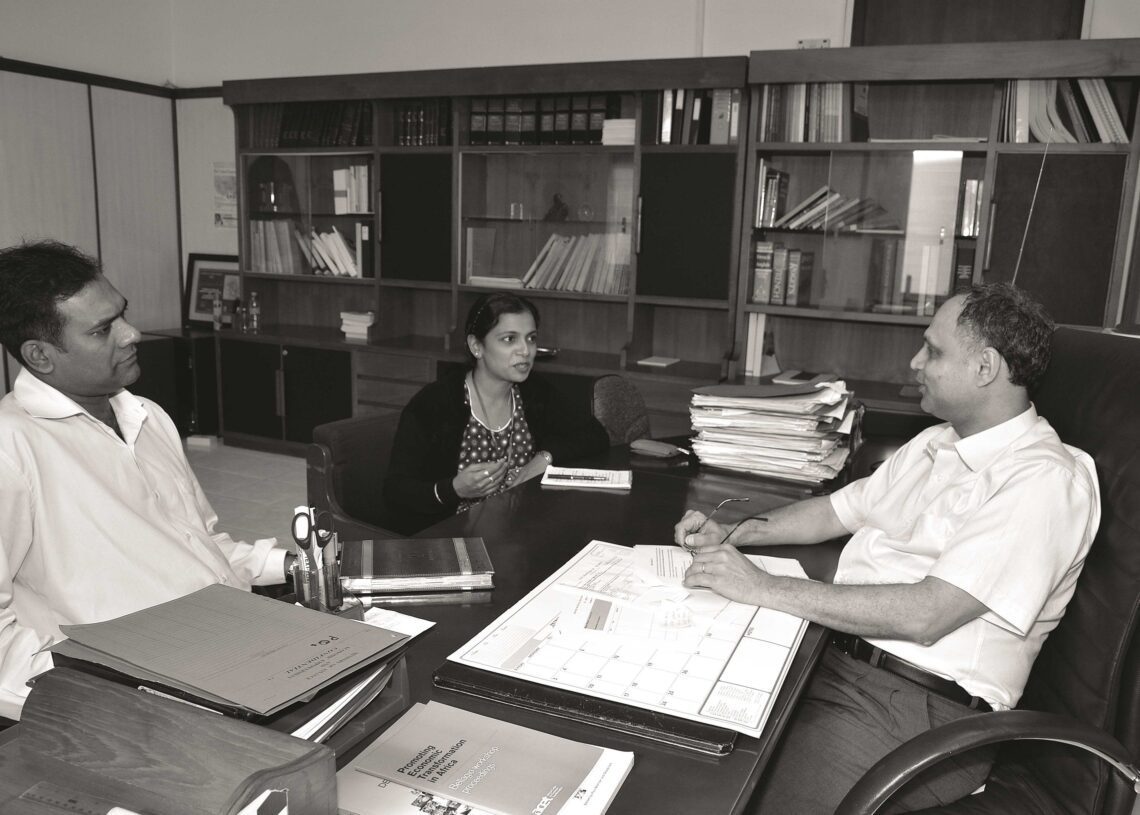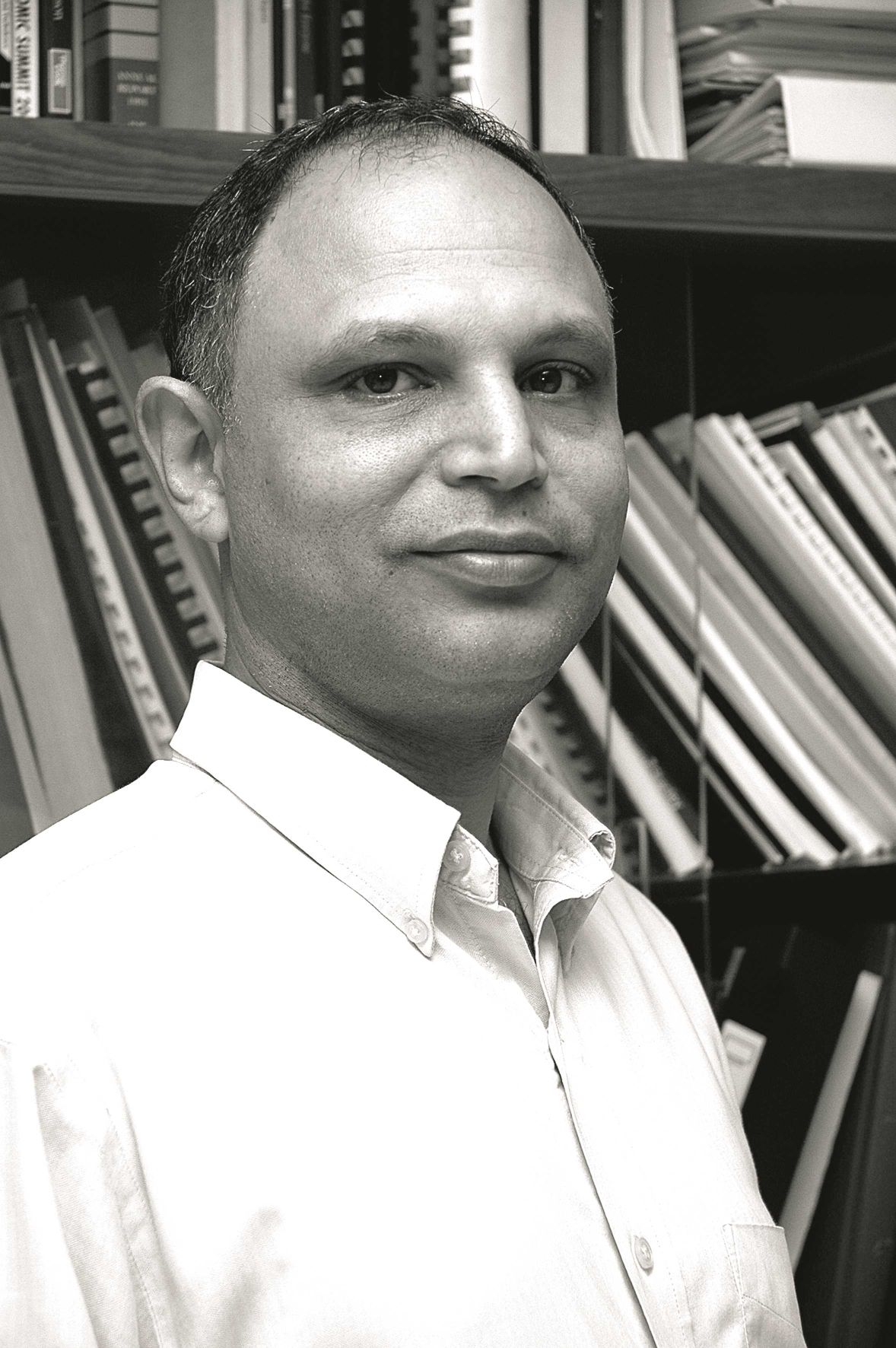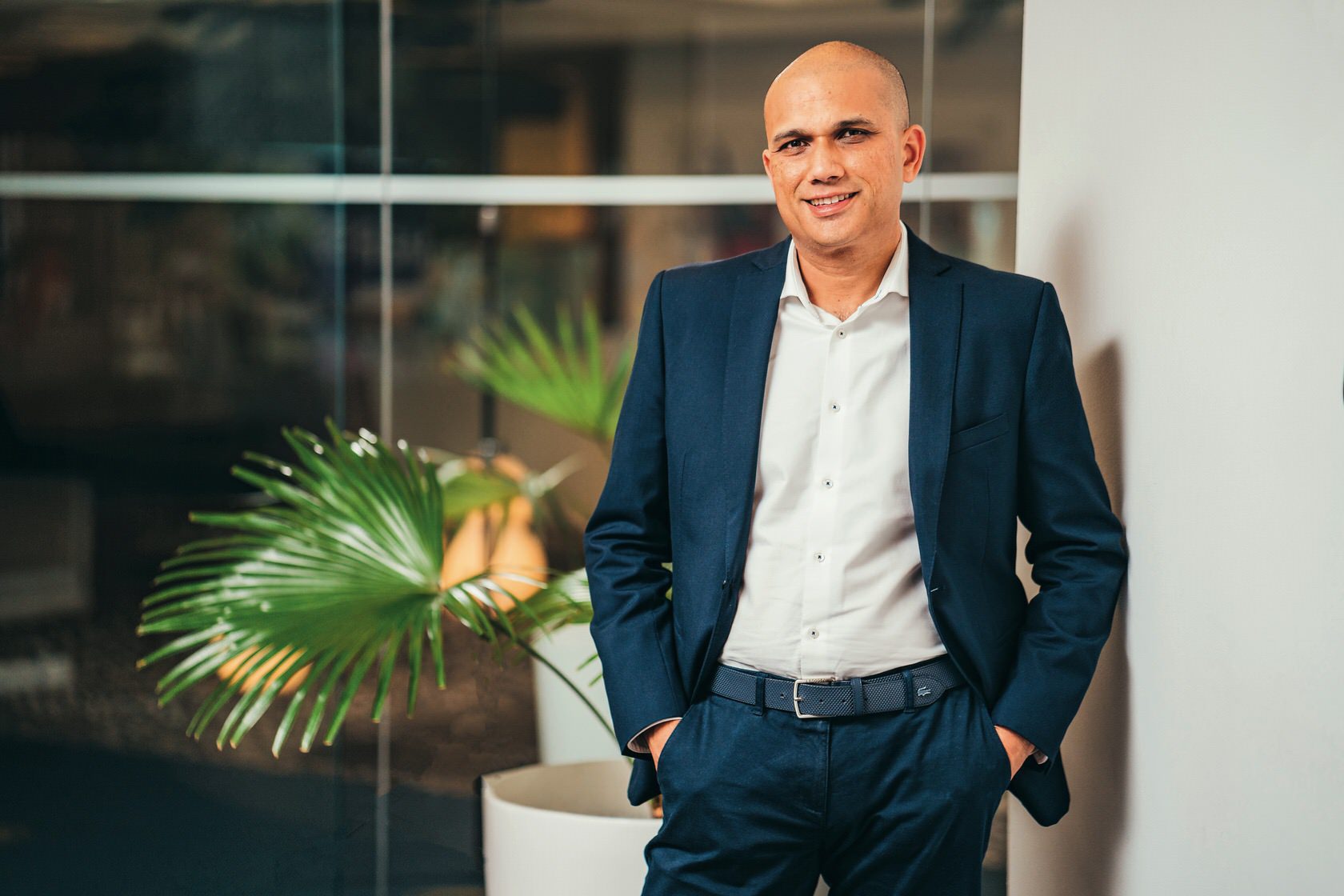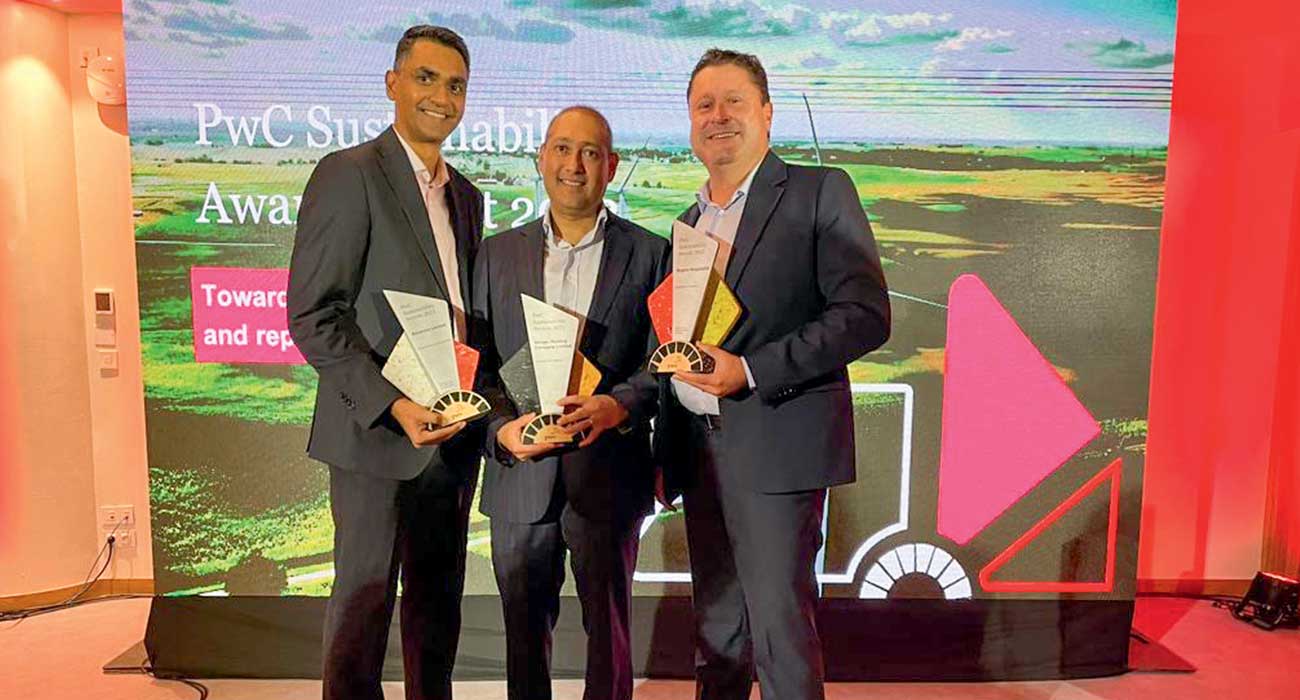All economic activity has a social and environmental impact. The concept of corporate social responsibility encourages company involvement in order to strike a balance. The Finance Act 2009 introduced an obligation for companies to devote 2% of their profits to social projects. Three years on, Ali Mansoor, Financial Secretary in the Mauritian Ministry of Finance and Economic Development, assesses how far this innovative approach has been successful.
photos : manoj nawoor | atipik ltd
You were one of the architects of the Corporate Social Responsibility (CSR) legislation, passed in 2009. Three years later, what is your assessment?
It’s work in progress. We have come a long way but, as with any system, reaching our objectives takes time. It’s good that major companies have already set up foundations, providing a structure for the development of a long-term vision and a programme in order to engage with civil society (which in this context normally refers to voluntary organisations).
However, civil society itself is not well enough organised to make the system function effectively enough to obtain the results we might have hoped for. Capacity building is needed. Small NGOs, for example, have commented in various forums on the absence of an interface with major companies’ foundations, which would have allowed them to put forward requests for project finance. Some NGOs fail to make full use of the mechanisms available to them, probably because they are not properly structured or because there is a lack of information.
Ministries too perhaps should give a bit more consideration to how the functioning of the system could enable volunteer groups have easier access to obtaining CSR funding and the private sector in support of their activities.
Why not take things still further forward by consolidating and professionalising the concept of social or community work, particularly by introducing training mechanisms and incentives?
Perhaps we first need to consider the philosophical approach behind all this. Why CSR and why Mauritius? Our economic success, which many considered unlikely, comes to a great extent from the collaboration between government and the private sector. It’s thanks to that collaboration that we’ve been able to make impressive progress since Independence.
Economic success has not come overnight and it still requires further efforts. The same is true of social advancement. Making progress in all the sectors where there are needs takes time. But, through collaboration between volunteers, government and the private sector, we can obtain the same kind of results as with the economy.
Your question needs a very concrete, practical and important answer in terms of this partnership. The foundations should perhaps increase their efforts in this respect. As they are in the front line, they are best able to assess which NGO projects are well or badly prepared. There may also be projects containing excellent ideas but which have not been fully worked through. The foundations could help by working with such NGOs to ensure they get the necessary training, not just in preparing their projects but also in capacity building so that they can implement them. If the foundations were to play this role of filter and organiser for voluntary organisations a bit more, it would be easier to deal with the problem.
There is already an apparatus in place. The Ministry of Social Security has an NGO Resource Centre; it responds to requests but does not really have a pro-active role. The Ministry also organises occasional courses and there are also training courses run by the University of Mauritius. The European Union also funds training under its Decentralised Co-operation Programme.
What is needed is content determined by and relevant to action on the ground. The State is not well placed to define the needs of voluntary organisations and the latter are not well structured enough to define their requirements. It is here that the partnership between private sector foundations, volunteer groups and government can help us progress in years to come, by asking the foundations to be a bit more pro-active, in helping to define training needs.
Even before the introduction of CSR legislation, Rogers had already decided back in 2007 to devote Rs 20 million (€ 500,000) over three years in the national fight against HIV/Aids. This commitment was renewed in 2010. How do you feel about this kind of initiative?
This is the idea behind CSR, a decentralised approach. It gives volunteer groups an incitement and the means to structure themselves so as to be able to undertake an activity, not just over an on-going period but also with a national impact. Often in the past, the activities of some organisations were time and location bound. Here there is a national programme which by definition requires a structure. CSR provides access to additional and secure financing but a structure is also needed to produce satisfactory results. It is exactly what we are looking for from private sector foundations, as they have the required structure.
Societal problems require time for their resolution but, as long as we continue to progress from year to year, we are on the right track and can hope to win through. There are some areas where, human nature being what it is, problems will endure and we have to learn to manage them. But with AIDS, for example, with all the developments going on nowadays, we can imagine that in a not too distant future the problem will become as manageable as other illnesses that we have had to fight in the past.

In an ideal world, if we may continue to think in terms of philosophy, shouldn’t CSR stem rather from a voluntary desire to support lasting social change than from a legal requirement?
As far as I’m aware, some companies donate more than CSR legislation requires. Indeed, that is true in Rogers’ case if I understand correctly. I think we are all under an obligation to be engaged socially. But it’s not just useful but necessary to legislate, to create a framework, with clear guidelines, to complement that moral obligation and to ensure there is secure and predictable financing to attempt to define a problem and to deal with it over time.
CSR can also be approached from another angle. Philosophically speaking, we can say in fact that it is a tax we pay on profits to finance social projects. But it differs from other taxes in the sense that their use is decided by government. CSR funds are a form of tax not dispensed by government alone but also by those who pay it, with civil society, whilst respecting guidelines provided by the State. The State provides the structure, defines the parameters of what can and cannot be included, but the funds return to civil society in coordination with those providing the funds. That would not be possible in a purely voluntary system, which would leave everything to individual whim.
Legislation on corporate social responsibility focuses on projects external to a company. Why weren’t internal activities, for example, also included?
There would be too great a temptation – we’re all human after all – if we were allowed to be judge and jury. Companies have to treat their employees properly and create a good working environment if they want them to be productive, but we can’t consider their obligation to society to be first and foremost satisfying their own employees.
A last question: are economic necessity and social and environmental responsibility in opposition when it comes to value creation?
I’ll reply to that question by using an environmental example. A hundred years ago, Montana was the third or fourth richest state in the USA in terms of revenue per inhabitant. Nowadays, I understand it is amongst the two or three poorest. Why? Because no attention was paid to the environment, which was overexploited. The state, once very rich in natural resources, was not able to manage its resources in a sustainable manner.
What I mean is that we cannot dissociate the economy from social factors, just as we can’t isolate social and economic factors from environmental ones. We have to be involved socially if we want to support the economy. If we treated citizens simply as a production tool, that wouldn’t function all that well for very long.
When we think of the most congenial societies in the world, we tend to think of the candinavian countries and those like Australia and Canada. They are not countries famous for being economic superpowers but because they have established social systems that are seen as encouraging each individual to attain his potential with a relatively equitable distribution of wealth. They are not thought of for their economic performances. For that, you would look to the United States, but most people would prefer to have the social systems of those other countries. The economy, then, should provide social benefits, but in a sustainable way. Again, the State on its own cannot achieve the balance between economic, social and environmental factors. Hence the importance of CSR as an instrument which enables the necessary partnerships to be formed in order to attain our objectives. It is then up to us collectively to use the available opportunities to resolve, increasingly effectively, the problems we, as a small country, face.
PORTRAIT
A distinguished career
The son of a couple of medical philanthropists, Ali Michael Mansoor has had a distinguished professional career. Now aged 55, he has held the post of Financial Secretary in the Mauritian Ministry of Finance and Economic Development since 2006. Holder of a Master’s degree in Mathematical Economics and Econometrics from the London School of Economics, and a Master’s in Public Policy, Ali Mansoor previously worked for such prestigious international organisations as the International Monetary Fund, the World Bank, the European Commission and COMESA (the Common Market for Eastern and Southern Africa).




















